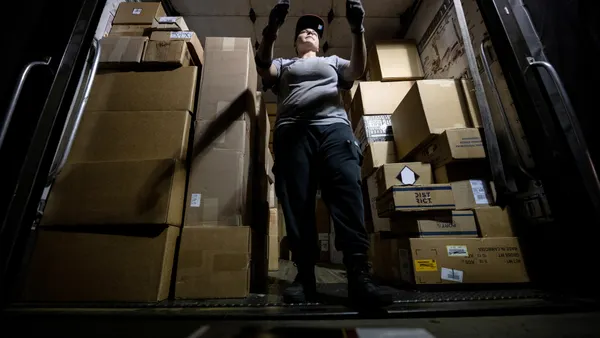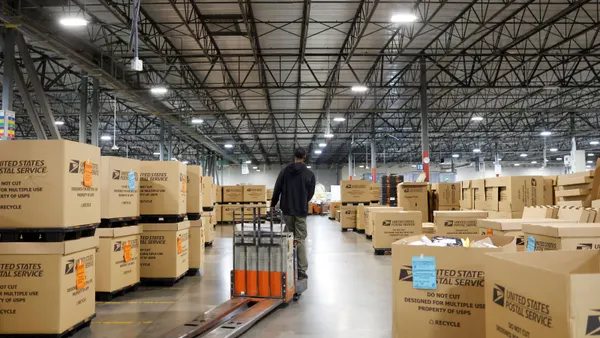Dive Brief:
- Zipline Logistics surveyed more than 100 trucking companies and found that in the wake of the electronic logging device (ELD) mandate taking effect, morale is dropping, productivity is slowing and rates are rising, but safety is improving.
- The primary reason for these developments (according to survey respondents) is because truckers have had to reduce the number of miles they drive due to the ELD's restrictions, prompting truckers to demand higher wages (pushing up rates) and cutting back on productivity.
- 83% of the respondents said productivity is down since the ELD mandate took effect, and 71% said rates are up. If these conditions continue, the trucking boom may soon reach its peak.
Dive Insight:
Zipline's survey doesn't paint a very positive picture of the trucking industry: not only are 95% of drivers struggling to deliver loads on time, their job satisfaction is dropping, and they're struggling to get higher pay. The driver shortage and the capacity crunch only exacerbates the issue.
All these developments were predicted before the ELD went into effect, so on one hand, it's not surprising, but on the other, they could carry certain implications for the future of the industry.
According to one unidentified respondent, "The ELD mandate just makes it harder to hit specific pickup and delivery times, especially when facilities keep us for an extended period of time, past two hours."
As a result, smaller fleets are more interested in shorter hauls than longer hauls, while the opposite is true for larger fleets. In turn, shippers may need to be savvier about optimizing freight routes — which is good for 3PLs — and may need to rely more on intermodal freight.
But this survey doesn't necessarily mean the industry is going downhill. With any new technology or equipment, there's going to be bumps on the road to full implementation and acclimation.
Industry experts have long predicted this kind of bumpy road following ELD implementation. If anything, the industry's current struggles with the ELD could be a correction to the surging freight market.













